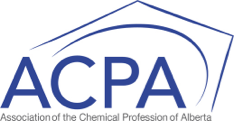ACPA Member Request: Submit Your Application of Chemistry

Chemists touch and affect everybody. We need to be proud of that and we need to share that. Our work goes well beyond standing at lab bench; it touches people’s lives, it touches people’s health, and it touches people’s safety.
The ACPA would like you, our members, to produce examples illustrating your application/practice of chemistry to publish on the Web (e.g., LinkedIn) or on our newsletter.
Read below for an example of our members application of Chemistry! Submit your example to [email protected].
I have been working in the field of environmental remediation globally for over 35 years. My background is synthetic Organic Chemistry, Geological Engineering, and have a Masters Certification in Project Management. When I went through university (UNB) in the 1980’s there were no environmental degrees, so I built a multi-disciplinary capacity, which has paid off immensely in my career with a capacity to see contaminated sites (Hydro-Geo-Chemistry) differently than most of my peers. As a consequence, I hold many patents, won many awards, have been to over 65 countries, which without my strong understanding of fundamental chemistry, I would not have been able to develop remediation technologies (i.e. Ivey-sol, PFAS-SOL, and DECON-IT) which consistently clean-up contaminated sites faster, and more economically than most any other physical, biological and chemical remediation options on the market. What surprises me most is the sheer lack of chemists in the environmental sector, particularly given the contaminants of concern (COC) are mostly organic chemicals…and due to the lack of fundamental chemistry knowledge, many engineers and/or geologists doing site remediation, will assume, miss or simply ignorantly overlook vital aspects of COC chemical behavior that could help expedite soil, bedrock and groundwater remediation…consequently, the lack of chemistry knowledge by practitioners has resulted in most sire remediation applications taking much longer than is fundamentally needed (in my knowledge opinion)…When you have limited knowledge of: solubility, sorption, interfacial tension, agglomeration, steric hindrance, stoichiometry, and how they interplay within a hydro-geo-chemical environment, myopic assumptions can lead to incorrect diagnosis of sites with poorly designed remedies, with less favorable outcomes for the sites (The Patient). In my career, chemistry has allowed me to average <1 years to remediate most any site, and to also combine remediation technology top achieve synergistic benefits (1+1=3)…I was at a symposium last December and asked the audience, comprised of ~105 people, how many were chemists, other than me, only 4 hands went up with 3 working at commercial environmental labs and the other a chemist working in site remediation with a very good reputation for what he was doing…Chemistry matters in the environmental field! To help address this obvious shortcoming, I will give a ¼ day workshop called “Hydro-Geo-Chemistry Made Easy For Site Investigation and Remediation” attendee feedback is very positive!
